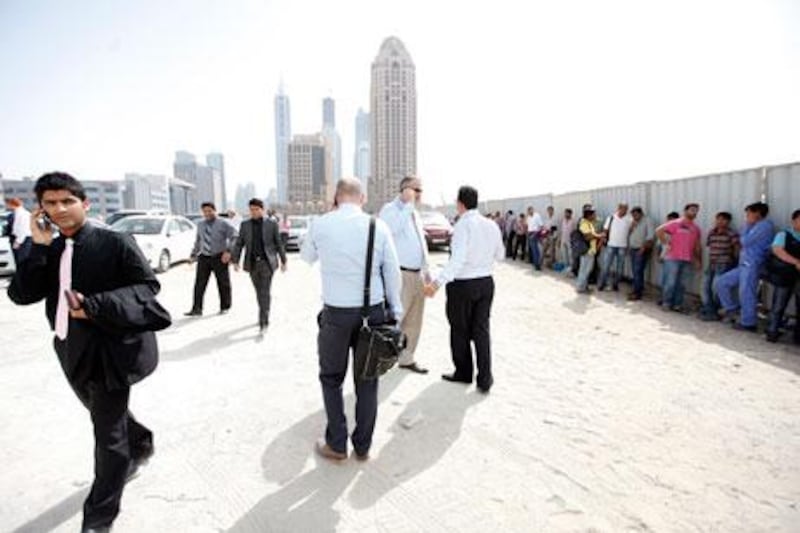DUBAI // Residents who live and work in tower blocks can rest easy about their earthquake fears, Dubai Municipality's resident seismologist says.
Dr Kamal Atiya, an earthquake expert from the municipality's survey department, sought to calm nerves during a lecture on quake safety yesterday.
"The earthquake zone is always on the edge of the seismic plates, which in our region of the Arabian plate passes through the middle of Iran - far, far away from the UAE," Dr Atiya said.
Many residents have been on edge following the tremors felt in the UAE as a result of a 7.8-magnitude earthquake near the Iran-Pakistan border on April 16.
Rumours circulated on social media did nothing to help - the US Geological Survey had predicted a very big tremor of 9.99 magnitude would hit the UAE between April 25 and 30.
"There cannot even be an earthquake of this magnitude," Dr Atiya said. "The highest recorded earthquake was a 9.5 that happened in Chile in 1960. The 2004 tsunami was due to a 9.1 earthquake off the coast of Sumatra, and the 2011 tsunami which devastated Japan was from a 9.0 earthquake."
A tsunami in the shallow Gulf, he said, was "highly unlikely" - it would require a quake of more than 7.0 magnitude and a fracture at precisely the right angle.
Mohammed Mushroom, director of the survey department at Dubai Municipality, said: "Currently there is no scientific way to predict earthquakes.
"The US and Russia attempted to come up with methods to predict earthquakes but they were very costly and both failed.
"What we do have is a way of detecting them accurately once they happen. Dubai Municipality has 13 seismic detection stations around the Emirate and we are also linked with the Abu Dhabi and Sharjah [stations] as well as international seismic centres. Our detection system receives data from our stations as well as all the other stations in the area, and alerts us and authorities when it detects seismic activity."
He said the system could also determine from the seismic waves if the activity was due to earthquakes or to controlled explosions such as those in quarries.
"Dubai is outside the threat range for earthquakes," said Mr Mushroom. "But it never hurts to be prepared.
"Skyscrapers and towers in Dubai have all been tested to withstand earthquakes of higher magnitudes than we will ever see here. They also follow the UK building regulation with regard to seismic activity."
If you are in a tower when tremors hit, the best thing to do is stay put - don't evacuate down the stairs while the building is shaking and do not take the lifts.
"While the earthquake is happening you will not have any time to get outside," said Dr Atiya. "Just find a safe place to be, such as near a wall or a support beam, away from the edge of the building, or in a doorway.
Conventional earthquake advice is to take shelter from falling objects under a table. But Dr Atiyasaid: "If you are going to hide under a table, make sure it is a sturdy one that will withstand things falling on it."
After an earthquake, check the water, electric and gas supplies are not damaged. If they are, shut them off. Open the windows and doors if you smell gas, leave immediately and inform the authorities.
Inspect for damage by examining the walls, floors, stairs, doors and windows, if they are unsafe leave before an aftershock and stand in an open space, clear of power lines.
Listen to the radio for updates, emergency information and instructions. Don't use the phone if it is not an emergency, Dr Atiya said, or people run the risk of tying up the lines for those in need.






